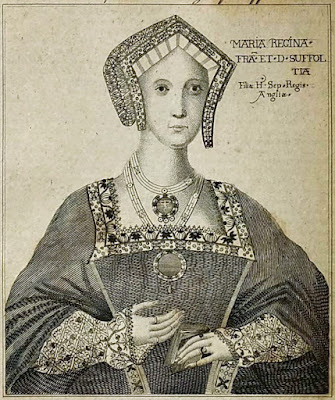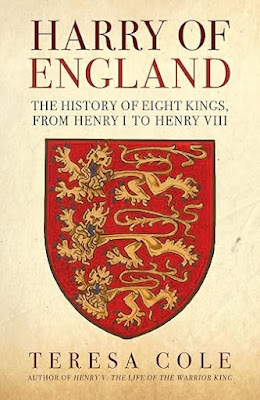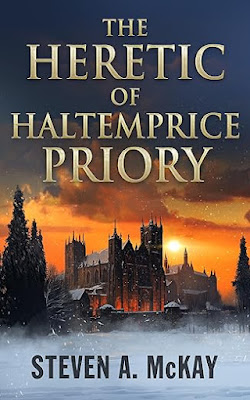Will the discovery of a murder spoil Christmas for Jan Christopher and her boyfriend DS Laurie Walker – or will it bring them closer together?
Introduction by Helen Hollick:
You wouldn’t think that a murder mystery story would be the right thing for Christmas would you? But nearly all of us like solving mysteries, especially via the more light-hearted crime-solver TV series like Poirot, Miss Marple, Father Brown Midsomer Murders, Death In Paradise and the like.
And then there are easy to read (but not easy to solve!) who-dun-it novels that can be nicely tucked into a Christmas Stocking or left beneath the Tree. And if these Cosy Mysteries happen to also have a theme of interesting characters set against a Christmassy background ... well, what is there not to enjoy?
A MYSTERY OF
MURDER
A Jan Christopher
Murder Mystery
By Helen Hollick
(2nd in
the series, but can be read as a standalone)
Amazon Universal Buy Link
http://mybook.to/AMysteryOfMurder
Christmas 1971. Library Assistant Jan Christopher is to spend Christmas with her boyfriend, DS Laurie Walker and his family, but when a murder is discovered, followed by a not very accidental accident, the traditional Christmas spirit is somewhat marred...
What happened to Laurie’s ex-girlfriend? Where is the vicar’s wife? Who took those old photographs? And will the farmer up the lane ever mend those broken fences?
Set in 1971, this is the second Jan Christopher Cosy Mystery. Join her (and an owl and a teddy bear) in Devon for a Christmas to remember.
Excerpt From Chapter 1
The thought of driving all the
way from London to Devon with my boyfriend, Laurie, for Christmas was exciting,
but tinged with a smattering of reluctance. It would mean leaving my Uncle Toby
and Aunt Madge, behind. I’d not had a Christmas or a New Year without them
since they’d adopted me when I was orphaned at five years old. At almost
nineteen, independence was knocking at the door, but all the same, I was
concerned about leaving them for the duration of the festivities. Concerns
which Aunt Madge soon put an end to.
“Goodness,
Jan, we’ve been looking forward to a Christmas on our own for the past, I don’t
know how many years!”
I
wasn’t sure if she was being serious or joking.
Uncle
Toby’s response to my worries about Christmas was less blunt. “Laurie is
already taking leave, so we can’t all be off on merry jaunts at the same time,
Jan. The crime rate would soar, and Chingford Police wouldn’t cope.”
My
uncle, in his working capacity, was Detective Chief Inspector Tobias
Christopher. Laurie – Lawrence Walker – had recently been promoted to be his Detective
Sergeant bagman. Two important people within the realm of law enforcement, although,
I suspected that the North London suburban town of Chingford would survive
without them both for a few days. There were, after all, other men (and
a few women) in CID. Although, maybe these others were not as competent – but
then, my opinion is severely biased.
For
myself, my full name is January, for the month I was born, but everyone calls
me Jan. I was quite happy to take several days off from working as an assistant
in our local library. It was always busy in the run-up to Christmas closing,
and while I would miss out on the boxes of chocolates and tins of buttery
shortbread given to the staff by appreciative members of the public, my already
too broad waistline would not suffer from it.
My
main fear, however, was meeting Laurie’s parents. I had spoken to them on the
telephone several times and they seemed nice, but I had been going out with
Laurie since late July – would they assume that our relationship was becoming
serious?
Come
to that, did I assume it was serious? By accepting the invitation, was I
committing myself to a possible life as a policeman’s wife? Or was I reading
too much into things? I mean, spending Christmas with your boyfriend’s family
didn’t mean a marriage proposal, did it? Or did it? Then there was the
question, did I, or didn’t I, want it to mean just that?
Had
I known what was to happen soon after we arrived at Mr and Mrs Walker’s lovely
old West Country house though, my apprehension would have dwindled to nothing.
And
then a grisly murder was discovered, which somewhat tarnished the
traditional jolly Christmas Spirit...
Buy Now: paperback or Amazon Kindle (and on Kindle
Unlimited)
http://mybook.to/AMysteryOfMurder
Reviews and Comments
"There are lots of things to enjoy in the second in the Jan Christopher cosy mystery series" Best-selling cozy mystery author Debbie Young
Coffee Pot Book Club Online Tour Reviews
"Jan is an absolutely lovely
character, and I loved following her story. She is a little naïve, but she is
18, and there are things about the world that she has yet to learn... a great
story to settle down with to get you into the Christmas spirit, as well as
pulling on your detective hat and analysing the characters."
Review: Like A Thousand Suns Blog
"A laid back sort of novel, the kind that you can relax while reading, and simply let the story happen. This author has a particularly unique style of writing... this book wasn’t simply a story, but an experience. You almost have the feeling that the author is reading the book to you, and is adding in her own little quips every now and again. I loved every second... The whole mystery is well thought out... utterly amazing!" Review: I Got Lost In A Book Blog
"The pace is gently cosy, despite the
murder... Jan is a wonderful character; young, naïve, but also savvy when
needed. And Laurie is a gem. All the characters and their foibles and actions
stay true to the era... a lovely, warm story."
Review: Ruins & Reading
"I almost felt like I was in this
book, and I absolutely fell in love with the characters…"
Review: Oh Look! Another Book!
 |
| About the Author |
First accepted for traditional publication in 1993, Helen became a USA Today Bestseller with her historical novel, The Forever Queen (titled A Hollow Crown in the UK) with the sequel, Harold the King (US: I Am The Chosen King) being novels that explore the events that led to the Battle of Hastings in 1066. Her Pendragon’s Banner Trilogy is a fifth-century version of the Arthurian legend, and she writes a nautical adventure/supernatural series, The Sea Witch Voyages. She has also branched out into the quick read novella, 'Cosy Mystery' genre with her Jan Christopher Mysteries, set in the 1970s, with the first in the series, A Mirror Murder incorporating her, often hilarious, memories of working as a library assistant. The fifth in the series, A Memory Of Murder, was published in May 2024.
Her non-fiction books are Pirates: Truth and Tales and Life of A Smuggler. She is currently writing about the ghosts of North Devon and Jamaica Gold for her Sea Witch Voyages.
Recognised by her stylish hats, Helen used to attend book-related events as a chance to meet her readers and social-media followers, but her ‘wonky eyesight’ as she describes her condition of Glaucoma, and severe arthritis is now a little prohibitive for travel.
She lives with her family in an eighteenth-century farmhouse in North Devon with their dogs and cats, while on the farm there are showjumper horses, fat Exmoor ponies, an elderly Welsh pony, geese, ducks and hens. And several resident ghosts.
Website: https://helenhollick.net/
Amazon Author Page: https://viewauthor.at/HelenHollick
Facebook: https://www.facebook.com/helen.hollick
X/Twitter @HelenHollick https://x.com/HelenHollick
Blog: supporting authors & their books
https://ofhistoryandkings.blogspot.com/
Monthly newsletter : Thoughts from a Devonshire Farmhouse
(posted on a blog - subscribe to a 'reminder' list) Start Here: January 2024
https://ofhistoryandkings.blogspot.com/2024/01/thoughts-from-devonshire-farmhouse.html
public email: author@helenhollick.net



















,_by_Daniel_Mytens.jpg)







